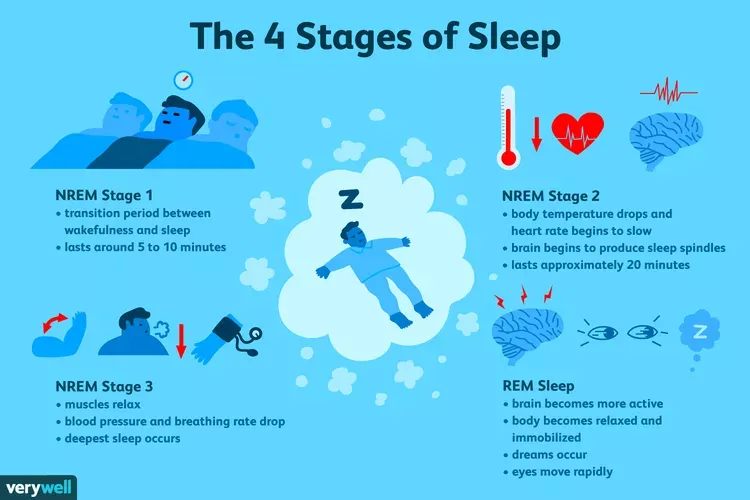
Alcohol Use in Adolescents: The Hidden Impact on Mental Health
February 11, 2025
Contents
- How alcohol affects the mind
- Alcohol and its impact on sleep
- Alcohol dependency
- Peer pressure and social influence on alcohol consumption
- Alternatives to drinking alcohol
- Signposting where to get support
Alcohol and the mind
Alcohol can have both short-term and long-term physiological consequences for the brain.
In the short term, alcohol can impact the area of your brain that contributes to sensing danger and emotional regulation. This area of your brain is called the amygdala. This can slow your reaction times and lower your inhibitions, leading to more risky behaviours.
Alcohol also impacts the memory processing system in your brain. This is where memories are transferred from short-term storage in the brain to long-term storage, called consolidation. Alcohol disrupts this, leading to gaps in memory. This, in turn, can result in feelings of anxiety as you may worry about what you did as you cannot remember.
In the long term, numerous consequences have been documented. As an adolescent, your brain is still developing and frequent drinking can therefore impair that development. Early drinking can cause a decrease in grey matter, which can translate into poorer cognitive performances (how well your brain functions). There have also been links to lower self-esteem and higher rates of academic issues compared to those that do not drink, including missing classes, poor performance in exams and falling behind in school work.
Alcohol can further increase your risk of mental health difficulties. These include:
- Anxiety
- Depression
- Psychosis
- Suicidal thoughts
These relationships can be bi-directional, meaning that they will impact on the other.
For example, people who drink alcohol are at increased risk of depression, and those who are experiencing depressive symptoms are more likely to drink alcohol. As a result, people can find themselves trapped in a vicious cycle.
Impact on sleep
Whilst some people find that alcohol can make it easier for them to fall asleep, the quality of sleep that you have reduces. In the typical sleep cycle, there are four stages of sleep.

Going through these stages is crucial for adolescents in terms of their daily physical, cognitive and psychological welfare.
Instead of going through the sleep stages, you will experience more of stage 3 sleep and less REM sleep at the early stage of the night. REM sleep is important for emotional processing, memory consolidation and brain development. As a result, when we do not experience enough, we can struggle to concentrate the next day and experience forgetfulness.
As the alcohol has been digested, you then will experience more Stage 1 sleep, resulting in waking up more frequently and less of the higher quality stages.
Overall, it has been documented that poor sleep can maintain physical and psychiatric disorders and that long-term alcohol usage can lead to irreversible damage to the brain system that regulates this sleep called the circadian rhythm.
Alcohol Dependency
Another risk when drinking alcohol as an adolescent is developing alcohol dependency. It has been outlined previously that when someone starts to drink before the age of fourteen, their chance of developing alcohol dependency in their lifetime is 41%.
Some of the alcohol dependency signs are:
- Often feeling the urge to drink
- When you drink, you get into trouble
- Other people warning you about the amount you're drinking
- Waking up feeling regretful of things that occurred when drinking
If you believe you are struggling with alcohol dependency, we recommend reaching out to your GP. At the end of this article is also a list of resources you can access.
Below is a helpful video regarding how many units are in each drink and how to get access to alcohol support. However, please note the unit recommendations are for that of an adult. If you are under the age of 15, the recommendation is that you should not be drinking any alcohol.
Peer pressure and social influence
Experiencing peer pressure to drink alcohol is, unfortunately, quite common. Having friends that drink led to an increased risk of alcohol usage amongst adolescents, increasing the behaviour of drinking by 80%.
A survey conducted with 11-15-year-olds looked into the reasons as to why they had drank alcohol previously:
- 74% drank alcohol to be perceived as cool in front of their friends
- 61% drank alcohol as a way of socialising
- 62% felt pressured by their friends to drink.
Peer pressure can range from very obvious signs to some more subtle ones, such as:
- A friend asking you to just have one more drink
- Calling you boring if you refuse an alcoholic drink
- Being handed a drink without even asking for one or having someone constantly top up your drink
- Not being invited to certain social occasions as you don’t drink alcohol because ‘everyone will be drinking’
- Being involved in drinking games without asking first or when you decline being teased about it.
This can make it more difficult for you not to drink. Some good things to say if you would like to not drink that night are:
Make up an excuse
“I am looking forward to going out tonight, but I cannot drink because I have to get up early tomorrow (or another excuse you have, such as you are on certain medication so you cannot drink or you are driving so can’t it doesn’t have to be true!)”
Stand your ground
“I understand that you think I am being bored, but I just don’t want to drink tonight… I understand what you are saying, but I just don’t want to”
Question your friend’s behaviour
“I feel like you want me to drink tonight even though I don’t want to. Why is that?”
Alternatives to drinking
It can be worth thinking about other activities to do socially if you would still like to see friends but want to reduce that pressure to drink.
Other activities that you can do are:
- Go to do some exercise, e.g. go to the gym, a walk during the day, play tennis, play football or even go climbing
- Arrange a creative activity for you to do, such as pottery making or ceramics painting
- Go to a café for breakfast or lunch; this will reduce the pressure to drink as it is early in the day. Also, if you are under 18, you will not be able to buy a drink legally
- Go to the cinema
- Have a wellness night in with your friends and make healthy drinks instead, such as smoothies
- Go and see places; this could range from museums to beaches to food markets
Furthermore, there has been a rise in non-alcoholic drinks. Some large brands that you can now order with zero alcohol are:
- Guinness
- Heineken
- Beck’s
- Kopparberg
- Corona
- Gordon’s Gin
- Mavrik’s cocktail cans
Resources
Young Minds
There is a lot of advice on Young Minds about alcohol, including how to deal with peer pressure and stories from people who have been impacted by it.
Drink Aware
They provide support for those struggling with their drinking as well as information about the impact that alcohol can have on you.
Frank
Provides factual information about drugs and alcohol, including risks, impact and the law.
Anna Freud
Outlines the symptoms of substance misuse, including alcohol and provides information on how you can manage this.

